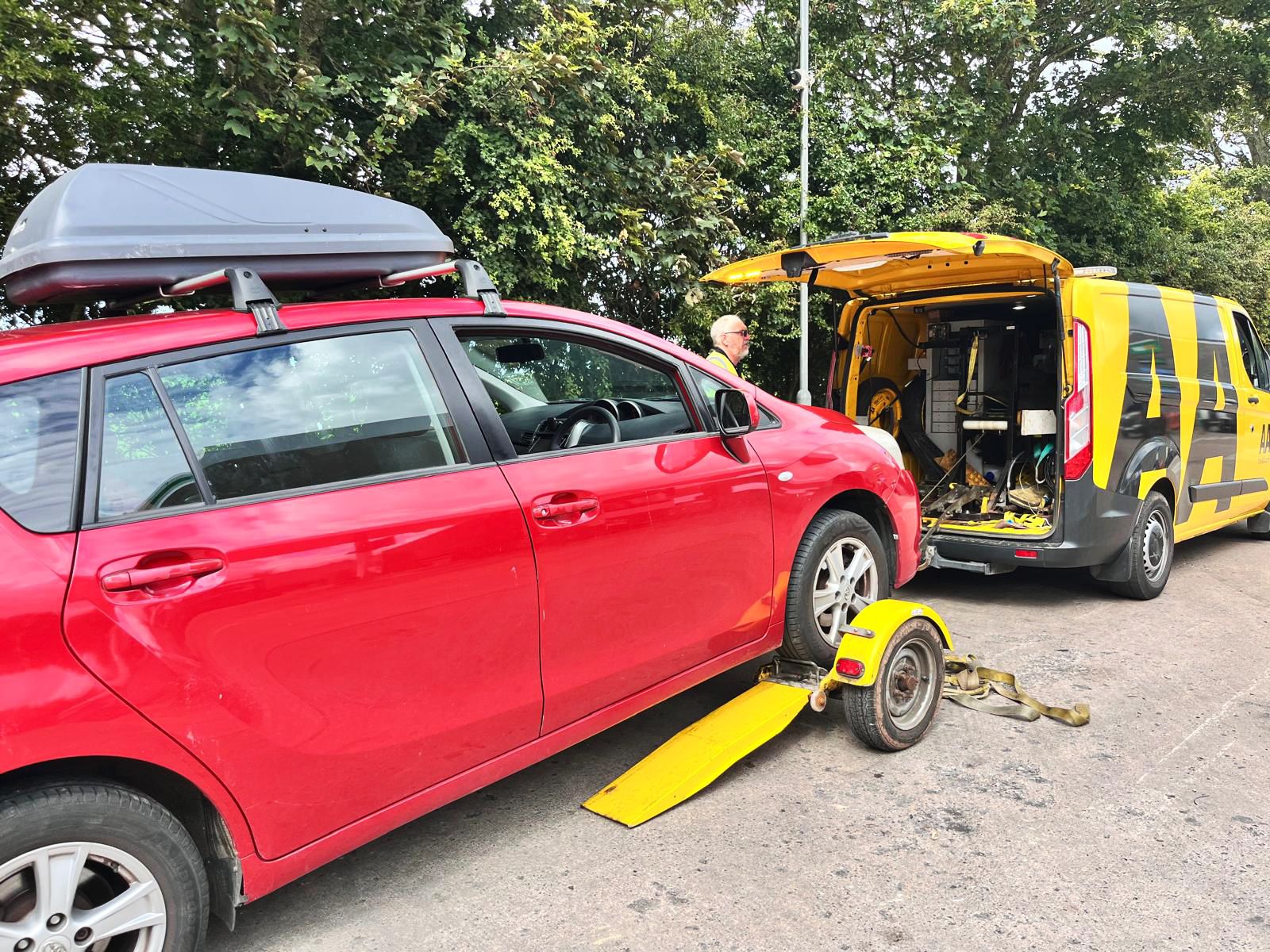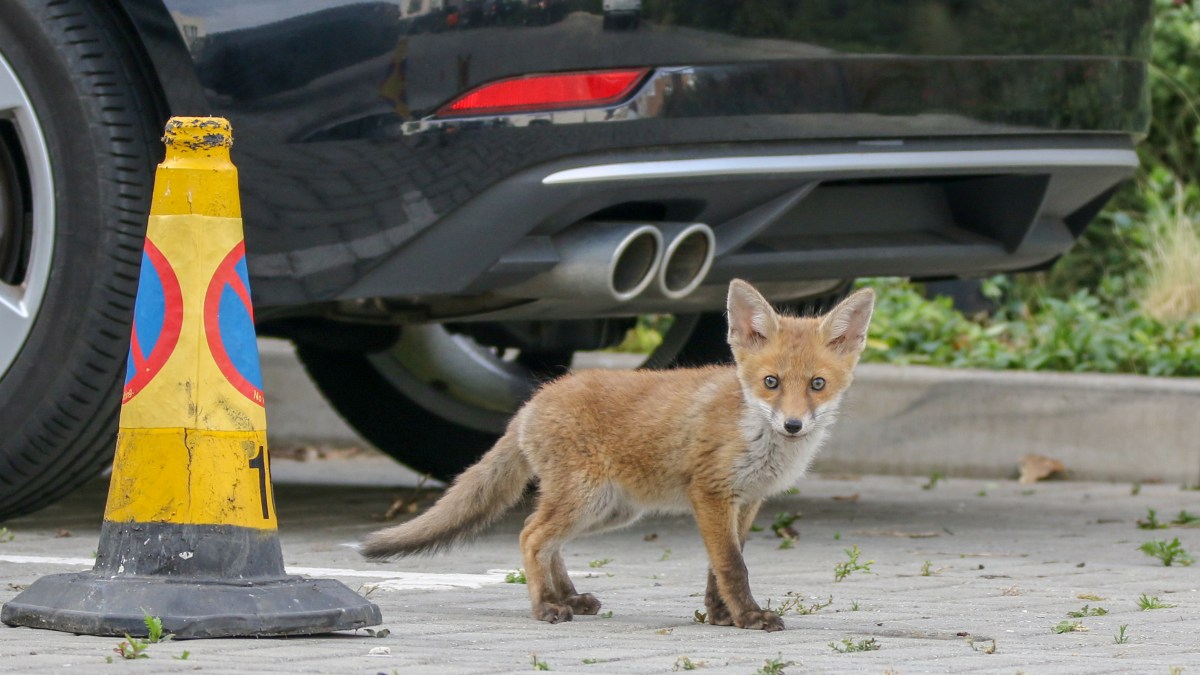A few months ago, a neighbour issued a polite, if terrifying, warning: never leave a garden door ajar because the increasingly brazen foxes lurking at the back of our terrace had begun to slip inside.
“Don’t worry,” I assured my neighbour, a little too smugly in retrospect. “We have our own four-legged defence system.” Our territorial cats, Jack and Luna, are known to spend dusk alert at the back door, side by side, staring at their russet rivals over the fence. The foxes wouldn’t dare.
There were other warning signs. One day my wife left a pair of Birkenstock sandals outside by the hammock and found the chewed remains the next morning, buckles detached like tiny, metallic trophies. But the moment my cat-brag really came back to haunt me arrived last month, when the foxes wrote off our family car.

It was a drizzly Saturday morning and I was at home working while my wife rushed to get our daughter to her 9am art class. A minute later, they were back through the front door, art abandoned. It transpired that someone had left the car door open the night before and the foxes had spotted an opportunity. My wife recalled asking our younger son to close it behind him as she walked to the house in the pouring rain, arms laden with groceries and school bags. In his defence, he’s only six.
With three children, the car is perpetually filthy, but the condition it was in after a skulk of young foxes had spent the night playing inside was beyond comparison. (I imagined they were cubs, the fox equivalents of our children, making hay while the sun — or should that be moon? — shone.) The first thing that hit me was the smell, an indescribable stench that I imagine to be something like the odour emitted by an angry skunk.
Adding to our woes, a floor mat in the footwell had been shoved aside — by foxes or children, I don’t know — so the creatures could helpfully deposit their mess directly onto the carpet. Aside from the biohazard, the material damage was shocking. Two children’s car seats were ripped apart, foam spilling out, buckles chewed off and discarded nearby.
The appeal of the car seats, I speculated, was probably down to the huge volume of dropped food and crumbs I vacuum out of them every few months. A scooter handle had been nibbled and a prized light-up helmet ripped apart. Most shockingly, three of the car’s seven seatbelts had been eaten — one had been bitten clean off and two others chewed almost all the way through, including the driver’s.

Seatbelts were chewed and children’s car seats ripped apart

We bought the car, a 2010 Toyota Verso I found on Autotrader five years ago after moving back from the US. It had done 88,000 miles in previous lives as a minicab in Cambridge and as another family’s car in Surrey. We had recently taken it over the 150,000-mile mark. Like all the aged, slightly battered cars I’ve owned, I’d grown strongly attached to it. It had taken us safely north during the eerie quiet of the Christmas 2020 lockdown and to this summer’s last great hurrah at the Green Man festival in Wales. I felt I couldn’t simply abandon it.
I began scrubbing, then took it to the valet car wash. The men there expressed sympathy, but when I picked it up half an hour later, they politely confirmed the smell was, sadly, non-removable. I then drove the seatbelt-free car to a local branch of We Buy Any Car, windows wide open to air it out. True to its pledge, We Buy Any Car offered me £200. The man there thought it might be possible to buy some secondhand seatbelts on eBay and get a garage to install them, but said he thought it would ultimately be a futile exercise given the car’s mileage.
He looked almost relieved as I got back inside to drive home, still convinced I could do better. I wondered if the insurers might help and made the call — only to be told it would be written off, marked down as “malicious damage, fox”. Finally, I admitted defeat: the car was a goner. I called a salvage company.

Since this incident took place, I’ve started seeing fox car crime everywhere. All hell has broken loose in Portchester, in rural Hampshire, where a gang of foxes has been terrorising a village’s cars by chewing through the brake wires underneath.
Has fox crime always happened? Apparently so. Our neighbour’s camper van, often parked near our car, had its brake wires attacked last year, which cost £500 to repair. Graham Le Blond, who runs Fox-a-Gon, a non-lethal fox-control business, says he gets five to ten calls a month about foxes damaging cables. The worst case of car damage he’s heard over the years was a Nissan dealership where cables on 15 vehicles were destroyed in one night thanks to a den nearby and many fox cubs in the area. Part of the problem, Le Blond says, is that in the past few years car brake manufacturers have been using “animal derivative products” for coating to avoid single-use plastic.
He had never come across a story like ours before, though. The clue, he thinks, was in the timing. Our car was ransacked about a month ago, around the same time as “dispersal season”, when fox cubs born in March who haven’t left of their own accord are kicked out of their homes. “Some of them are quite immature and they get into various scrapes … it may have just been one of them that found its way into your car,” Le Blond said, and agreeing that it was probably the smell of food that drew them in. “We’ve got something like four million receptors in our nose for smell and foxes have got 40 million,” he added. “Even if it had been washed or hoovered they would still be able to smell it.”
We now have a new car, and the financial pain of this incident is starting to recede. A cousin in the US put our experience into perspective on a family WhatsApp group. They too had had an unwelcome visitor when they left their car unlocked on a trip to the Smoky Mountains this summer — a bear got inside. Now that’s one mess I wouldn’t want to clean up.

